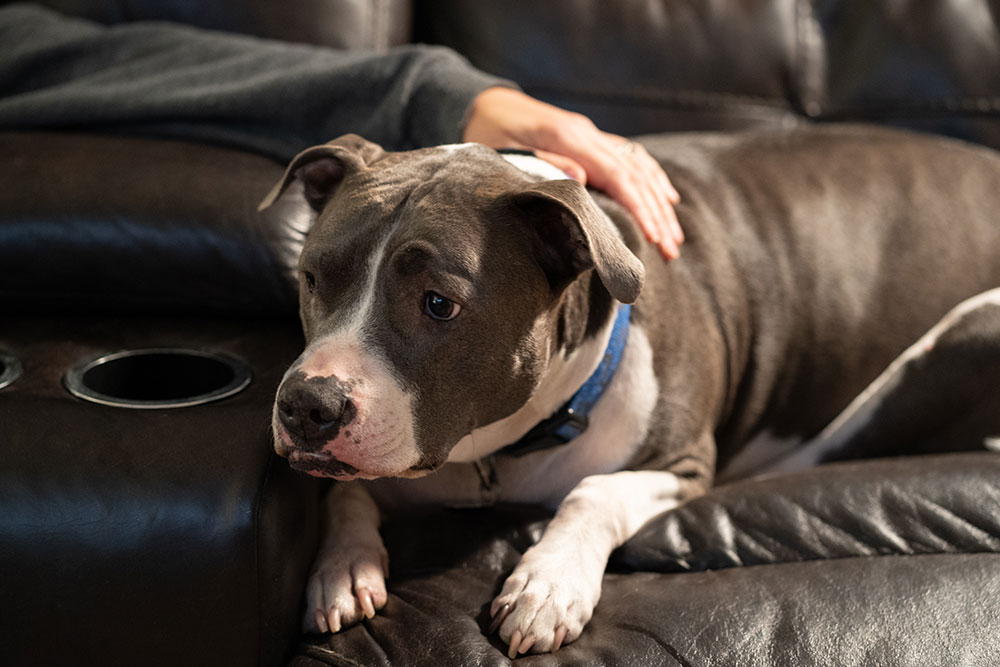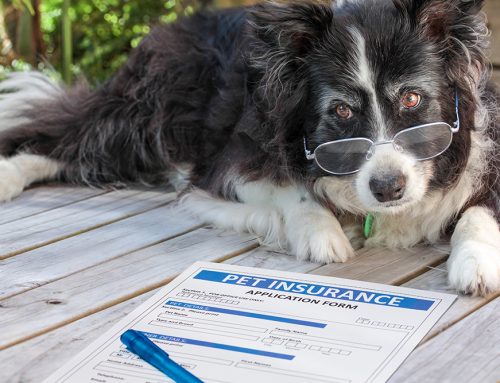Understanding Chronic Pain in Senior Pets at Wolf Creek Veterinary Hospital
As pets age, they often experience physical and behavioral changes that may indicate chronic pain. Unlike acute pain, which is sudden and temporary, chronic pain persists for weeks or months and can significantly impact your pet’s quality of life.
At Wolf Creek Veterinary Hospital in Grass Valley, CA, we are committed to helping pet owners recognize the signs of chronic pain and explore treatment options to ensure their pets remain comfortable and active in their senior years.
Identifying Signs of Chronic Pain in Aging Animals
Many pets instinctively hide their pain, making it difficult for owners to recognize discomfort. Being aware of subtle behavioral and physical changes can help ensure early intervention.
Common Signs of Chronic Pain
- Difficulty with movement – Limping, stiffness, reluctance to climb stairs, jump, or play
- Behavioral changes – Increased irritability, decreased social interaction, or sudden aggression
- Altered appetite – Loss of interest in food or difficulty chewing due to dental pain
- Excessive grooming or licking – Repetitive licking of a specific area, often indicating discomfort
- Restlessness or changes in sleep patterns – Difficulty finding a comfortable position or increased nighttime activity
For additional guidance, check out Common Pet Pain Signs – AAHA.
Diagnostic Approaches to Chronic Pain
Determining the cause and severity of chronic pain requires a comprehensive veterinary evaluation.
How Chronic Pain Is Diagnosed
- Physical Examination – Checking for joint stiffness, tenderness, or inflammation
- Imaging (X-rays, MRIs, CT Scans) – Identifying arthritis, hip dysplasia, tumors, or spinal conditions
- Blood Tests – Detecting underlying diseases like kidney disease, diabetes, or infections
Early diagnosis prevents unnecessary suffering and helps create an effective treatment plan.
Common Causes of Chronic Pain in Senior Pets
Degenerative Joint Diseases (Osteoarthritis, Hip Dysplasia)
- Osteoarthritis occurs when joint cartilage deteriorates, causing pain and stiffness.
- Hip dysplasia is a hereditary condition where the hip joint forms improperly, leading to arthritis over time.
Neurological Disorders (Degenerative Myelopathy, Spinal Issues)
- Degenerative myelopathy affects the spinal cord, causing weakness in the hind limbs.
- Intervertebral disc disease (IVDD) can lead to chronic back pain or paralysis if left untreated.
Chronic Illnesses (Kidney Disease, Cancer, Dental Pain)
- Kidney disease can cause ulcers and general discomfort.
- Oral infections, broken teeth, and gingivitis can lead to persistent dental pain, affecting eating and behavior.
Impact of Chronic Pain on Your Pet’s Quality of Life
Chronic pain affects more than just mobility—it impacts mental well-being and overall health.
How Pain Affects Senior Pets
- Restricted movement – Leads to muscle atrophy and decreased mobility
- Emotional distress – Anxiety, withdrawal, and depression are common in pets experiencing persistent pain
- Compromised immune system – Chronic pain can weaken immunity, making pets more susceptible to illness
Without proper treatment, pets with chronic pain may experience a declining quality of life and reduced longevity.
Treatment Options for Chronic Pain at Wolf Creek Veterinary Hospital
Our pain management strategies are designed to improve mobility, comfort, and long-term well-being.
Modern Veterinary Interventions
Pharmacological Treatments
- NSAIDs (Non-Steroidal Anti-Inflammatory Drugs) – Reduce inflammation and pain
- Opioids (for severe cases) – Used in advanced pain management
- Joint Supplements (Glucosamine, Chondroitin, Omega-3s) – Support joint health and reduce stiffness
Note: Long-term medication use requires regular veterinary monitoring to minimize side effects.
Integrative Therapies
- Acupuncture – Stimulates nerve function and increases circulation for pain relief
- Hydrotherapy (Water Therapy) – Helps pets exercise without putting stress on painful joints
- Laser Therapy – Reduces inflammation and promotes healing in affected areas
For advanced laser therapy insights, visit AKC’s Guide on Laser Therapy.
Home Care Strategies for Pets with Chronic Pain
Simple modifications to your pet’s home environment can significantly improve their comfort.
Making Your Home More Pet-Friendly
- Orthopedic pet beds – Provide extra cushioning for joint support
- Pet ramps or stairs – Help pets access couches, beds, or vehicles
- Non-slip flooring – Reduces the risk of falls on tile or hardwood floors
- Elevated food/water bowls – Prevents neck and back strain
Nutrition and Weight Management
- Maintain a healthy weight – Excess weight increases joint pressure and pain
- Diets rich in Omega-3 fatty acids – Help reduce inflammation and stiffness
- Specialized prescription diets – Some diets are formulated for joint and mobility support
Adjusting Daily Activities
- Short, frequent walks – Helps maintain strength without overexertion
- Gentle play and mental stimulation – Keeps pets engaged without unnecessary strain
- Massage therapy – Relieves tension and improves circulation
For more senior pet mobility tips, refer to AAHA’s Mobility Matters Guide.
Partnering With Your Vet to Manage Chronic Pain
The Importance of Regular Veterinary Check-Ups
Routine veterinary check-ups help:
- Monitor pain progression and medication effectiveness
- Adjust treatment plans as needed
- Identify early signs of worsening conditions
How Wolf Creek Veterinary Hospital Can Help
At Wolf Creek Veterinary Hospital, we take a personalized approach to chronic pain management. Our experienced veterinary team will work closely with you to:
- Develop a customized pain management plan
- Offer alternative therapies to reduce reliance on medications
- Provide ongoing support and follow-up care
If you have concerns about your senior pet’s pain, contact us today:

FAQs: Understanding Your Pet’s Chronic Pain
What are the long-term effects of untreated chronic pain?
Untreated pain can lead to:
- Reduced mobility and muscle loss
- Increased stress, anxiety, and aggression
- Accelerated progression of degenerative diseases
How can I tell if my pet is experiencing a pain-related emergency?
Seek immediate veterinary care if your pet:
- Suddenly cannot walk or stand
- Exhibits severe or sudden pain responses (crying, whining, or howling)
- Loses consciousness or has extreme difficulty breathing
Can chronic pain in pets be cured?
While some causes of pain are irreversible, many pets experience significant relief with proper treatment. A combination of medical care, lifestyle adjustments, and therapy can greatly enhance their quality of life.
At Wolf Creek Veterinary Hospital, we are dedicated to helping senior pets live pain-free, happy lives. If your pet is struggling with chronic pain, don’t wait—contact us today to explore treatment options tailored to their needs.






Leave A Comment